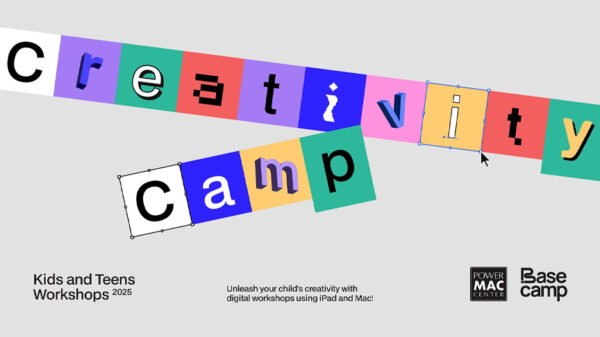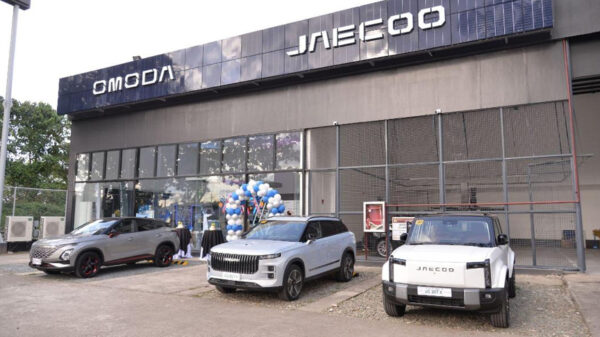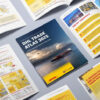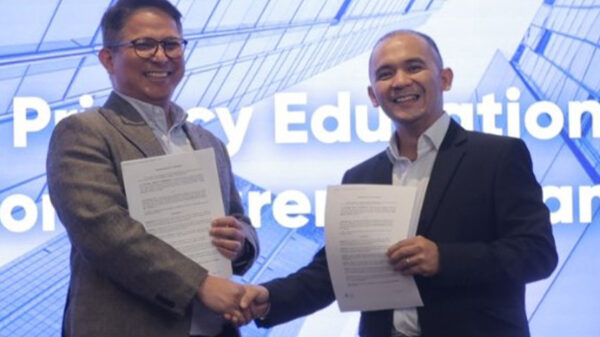After two years of accelerated digital transformation, only 50% of IT leaders in Philippines (APJ: 55%; Global: 50%) say their organizations know what it takes to digitally transform a workforce, but after such rapid change, many employees are now facing a challenge to keep up the pace, according to a new Dell Technologies survey. What’s more, more than two-thirds of 10,500 respondents from 40+ countries believe their organizations underestimate how to engage with their people properly when planning transformation programs.
The results highlight how the recent period of rapid transformation is leaving businesses and their workforce in need of time to recharge, reflect, and refine before embarking on new or iterating projects. Despite the huge progress and efforts of the past few years, the research highlights how there is still a potential for transformation to stall as 67% of respondents in the Philippines (APJ: 72%; Global: 64%) believe it is their people’s resistance to change that can lead to failure. At 49%, close to half of Philippine respondents (APJ: 62%; Global: 53%) fear they will be shut-out of the evolving digital world due to a lack of people with the right authority/vision to capitalize on the opportunity – this is when an as-a-Service model becomes a favorable option for many businesses.
“To build a better future that works for all, we need to recognize that business success and employees’ wellbeing are inextricably linked. Our latest research highlights that sustainable digital transformation happens at the intersection of people and technology. To achieve an effective breakthrough, organizations should consider a three-pronged approach. First, provide employees with consistent and secure work experiences, not defined by where they work. Second, help drive productivity by augmenting human capabilities with technology tools to allow employees to focus on what they do best. Lastly, inspire employees through an empathetic culture and authentic leadership,” said Amit Midha, president, Asia Pacific & Japan, and Global Digital Cities, Dell Technologies.
“Most organizations around the world – including Philippines – realise the need to digitally transform, but they find digital transformation hard, and their people don’t always embrace change. This human-technology friction is only compounded by the pandemic; and what we end up with is businesses that are more digitally resilient, but many of their people are exhausted,” added Ronnie Latinazo, country general manager, Philippines, Dell Technologies. “Today, businesses aspiring for sustainable success need to be asking themselves how they can thoughtfully and purposefully help their people navigate further change.”
Now is the time for organizations to take stock before embarking upon new digital transformation projects, ensuring their workforce is supported and has clarity on the next stage of implementation.
Benchmarking readiness for digital change
Dell and independent behavioral experts studied survey respondents’ appetite for digital change and found that 8% of the Philippine workforce (APJ: 7%; Global: 10%) – from senior business leaders to IT decision-makers and staff – are pursuing modernization projects. And about 36% of Philippine respondents (APJ: 46%; Global: 42%) are slow or reluctant to embrace change.
The study charts a path forward. It signposts opportunities for businesses to focus and keep pace with transformation, with breakthrough happening at the intersection of people and technology along three frontiers:
1. Connectivity
Businesses performed tremendous feats to connect, collaborate, and conduct business online during the pandemic. But they are not finished.
Around 82% of Philippine respondents (APJ: 78%; Global: 72%) say they need their organizations to provide the necessary tools and infrastructure to work anywhere (along with the autonomy to choose their preferred working pattern). In fact, they worry their people might be left behind because they do not have the right technology to shift to a highly distributed model (where work and compute are not tied to a central place but occur everywhere).
The technology alone is not sufficient. Businesses also need to make work equitable for people with different needs, interests, and responsibilities, including the 91% of employees in the Philippines (APJ: 82%; Global: 80%) that would like their organization to do any of the following:
- Clearly define their ongoing commitment to flexible work arrangements and the practicalities of making it work – Philippines: 51% (APJ: 46%; Global: 40%)
- Equip leaders to effectively and equitably manage remote teams – Philippines: 48% (APJ: 42%; Global: 42%)
- Empower employees to choose their preferred working pattern and provide the necessary tools / infrastructure – Philippines: 52% (APJ: 46%; Global: 44%)
2. Productivity
People’s time is limited and there are now too few qualified candidates for open roles. To address these strains, businesses can delegate repetitive tasks to automated processes and free-up people to focus on enriching, higher-value work.
At present, 36% of Philippine respondents (APJ: 32%; Global: 37%) say their work is stimulating and not repetitive. With the opportunity to automate more repetitive tasks, 71% of respondents in the Philippines (APJ: 74%; Global: 69%) would look forward to learning new, sought-after skills and technologies, like leadership skills, courses in machine learning, or focusing on more strategic opportunities to elevate their role.
3. Empathy
At their heart, businesses must build a culture, modelled by empathetic leaders, that treats people as their greatest source of creativity and value.
The research shows there is still work to do and empathy has to inform decision making – from simplifying technology for 59% of Philippines’ respondents (APJ: 52%; Global: 49%) who often feel overwhelmed by complex technologies, to tailoring change programs to individuals’ skills among 66% of Philippine employees (APJ: 50%; Global: 41%) who already believe their leaders do this.
For more information, visit www.dell.com/breakthrough and read our research report.











































































































